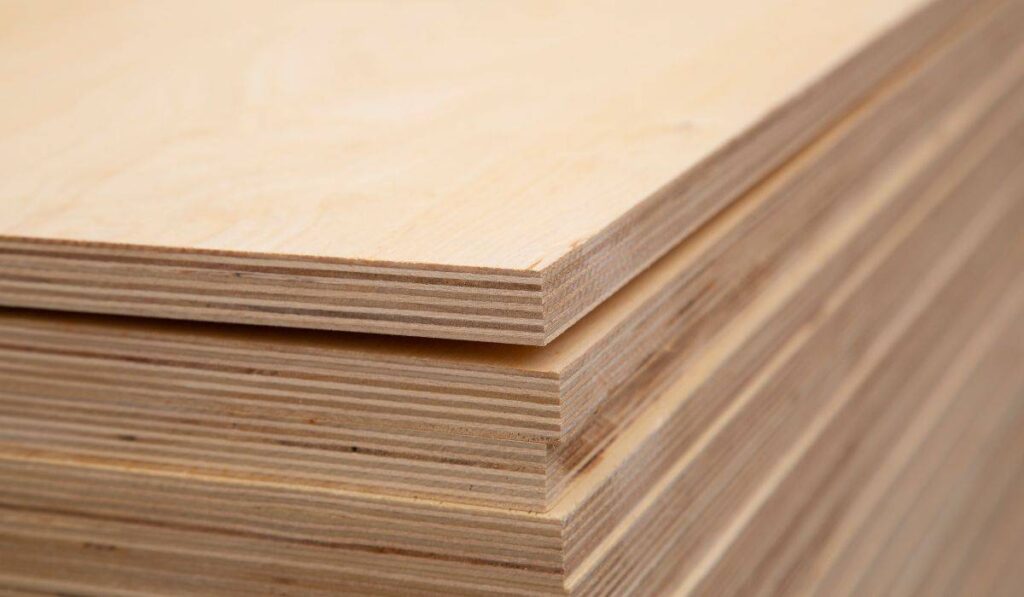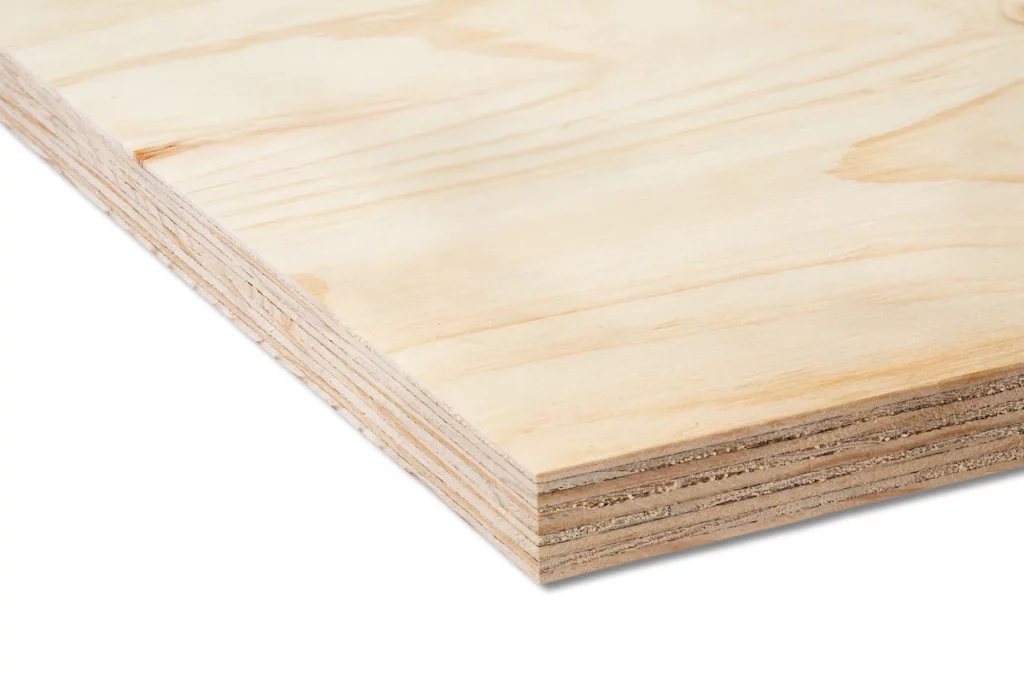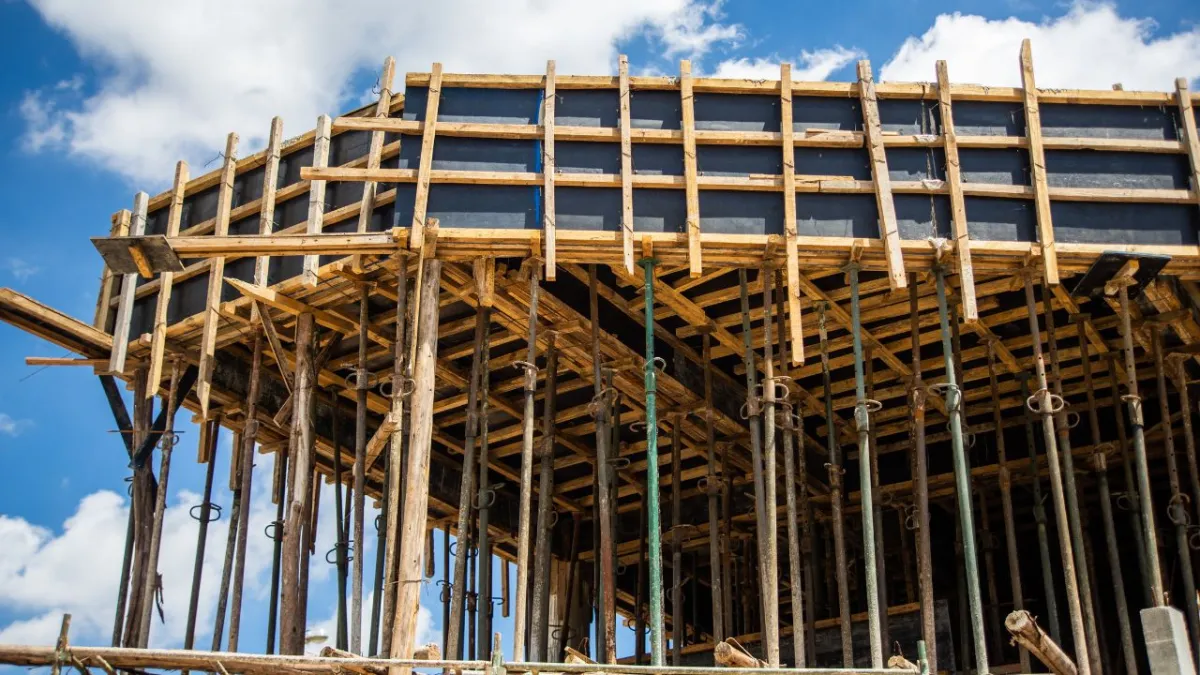Concrete formwork is a critical component in the construction industry, acting as a temporary structure that holds wet concrete in place until it sets. Among the various materials available for formwork, F17 plywood has emerged as a popular choice due to its numerous advantages. This article delves into the benefits of using F17 plywood for concrete formwork, highlighting its durability, cost-effectiveness, and versatility.
What is F17 Plywood?
F17 plywood is a high-quality structural plywood that is specifically designed for heavy-duty applications, including concrete formwork. It is made from multiple layers of thin veneer sheets, bonded together with strong adhesives, which enhances its strength and stability. The F17 plywood grading indicates that the plywood has been tested and certified to meet specific performance criteria, making it suitable for demanding construction projects. This type of plywood is particularly valued in the construction industry for its ability to perform under extreme conditions, such as high moisture environments and heavy loads, which are common in both residential and commercial builds.

Manufacturing Process
The manufacturing process of F17 plywood involves the selection of high-grade timber, which is then peeled or sliced into thin sheets. These sheets are glued together in a cross-laminated manner, which helps to distribute loads evenly and reduces the risk of warping or splitting. The end product is a robust and reliable material that can withstand the pressures exerted by wet concrete. Additionally, the adhesives used in the bonding process are often waterproof, further enhancing the plywood’s durability and making it suitable for outdoor applications. This careful attention to detail in the manufacturing process ensures that F17 plywood not only meets but often exceeds the expectations of builders and architects alike.
Grading Standards
F17 plywood is graded according to Australian standards, ensuring that it meets stringent quality requirements. The grading system takes into account factors such as strength, durability, and appearance. This certification provides builders and contractors with confidence in the performance of the material, knowing it has been rigorously tested for structural integrity. Furthermore, the grading process includes assessments of the plywood’s resistance to various environmental factors, such as humidity and temperature fluctuations, which can significantly affect its performance over time. As a result, F17 plywood is not only a practical choice but also a sustainable one, as it is often sourced from responsibly managed forests, aligning with contemporary environmental standards and practices in the construction industry.

Durability and Strength
One of the primary advantages of F17 plywood is its exceptional durability. The cross-laminated construction not only enhances its strength but also makes it resistant to bending and deformation under heavy loads. This is particularly important in concrete formwork, where the weight of the wet concrete can exert significant pressure on the formwork structure. The unique layering technique used in F17 plywood distributes stress evenly across the surface, allowing it to withstand the rigours of construction without compromising its integrity. This characteristic makes it a preferred choice among builders and contractors who require reliable materials for demanding applications. Read more about pressure on https://www.princeton.edu/~asmits/Bicycle_web/pressure.html
Resistance to Moisture
F17 plywood is designed to withstand exposure to moisture, making it an ideal choice for concrete applications. The adhesives used in its construction are waterproof, ensuring that the plywood maintains its structural integrity even when in contact with wet concrete. This resistance to moisture also helps to prevent the growth of mould and mildew, which can compromise the quality of the concrete and the formwork itself. Furthermore, the plywood’s ability to repel moisture extends its usability in various weather conditions, allowing construction projects to continue unabated even in rainy or humid environments. This versatility is particularly beneficial in regions with unpredictable weather, where delays can be costly.
Longevity
With proper care and maintenance, F17 plywood can last for multiple uses in concrete formwork applications. Its durability means that it can be reused several times before needing replacement, making it a cost-effective option for construction projects. This longevity not only reduces material waste but also contributes to more sustainable building practices. Additionally, the ease of cleaning and maintaining F17 plywood further enhances its lifespan; after use, it can be washed down to remove any concrete residue, allowing it to be prepared for subsequent jobs without significant effort. This practical aspect is a significant advantage for contractors looking to maximise their investment in materials while adhering to environmentally friendly practices.
Cost-Effectiveness
While the initial investment in F17 plywood may be higher than that of other formwork materials, its long-term cost-effectiveness cannot be overlooked. The durability and reusability of F17 plywood mean that contractors can save money over time by reducing the frequency of replacements.
Reduced Labour Costs
Using F17 plywood can also lead to reduced labour costs. The lightweight nature of the plywood makes it easier to handle and install, which can speed up the construction process. Additionally, its strength allows for fewer supports to be used, further streamlining the formwork setup. This efficiency can translate into significant savings on labour expenses. Click here to find more about efficiency.
Minimised Waste
F17 plywood’s durability and reusability contribute to minimising waste on construction sites. By choosing a material that can withstand multiple uses, contractors can significantly reduce the amount of plywood that ends up in landfills. This not only benefits the environment but also aligns with the growing trend towards sustainable construction practices.
Versatility in Applications
F17 plywood is not only suitable for concrete formwork but also offers versatility in various construction applications. Its strength and durability make it an excellent choice for scaffolding, flooring, and other structural elements.
Customisation Options
Another advantage of F17 plywood is its ability to be customised for specific project requirements. It can be easily cut and shaped to fit different formwork designs, allowing for greater flexibility in construction. This adaptability makes it a preferred choice for both residential and commercial projects.
Compatibility with Other Materials
F17 plywood can be used in conjunction with various other materials, such as steel and aluminium, to create hybrid formwork systems. This compatibility enhances the overall performance of the formwork and allows for innovative construction solutions that can cater to unique project needs.
Environmental Considerations
As the construction industry increasingly focuses on sustainability, the environmental impact of materials used in construction has come under scrutiny. F17 plywood, being a timber product, has several environmental advantages over synthetic alternatives.
Renewable Resource
Timber is a renewable resource, and when sourced from sustainably managed forests, F17 plywood can be considered an environmentally friendly option. Responsible forestry practices ensure that the timber used in plywood production does not contribute to deforestation, thus preserving ecosystems and biodiversity.
Carbon Footprint
Using timber products like F17 plywood can also contribute to a lower carbon footprint in construction. Trees absorb carbon dioxide from the atmosphere as they grow, and when timber is used in building projects, that carbon is effectively stored in the structure. This natural carbon sequestration process helps mitigate the effects of climate change.
Conclusion
F17 plywood offers a multitude of advantages for concrete formwork applications, including its durability, cost-effectiveness, and versatility. Its high strength and resistance to moisture make it an ideal choice for holding wet concrete, while its reusability contributes to more sustainable construction practices. As the industry continues to evolve, the benefits of using F17 plywood will likely make it a staple in concrete formwork and other construction applications.
In summary, the choice of materials in construction can significantly impact project outcomes. By selecting F17 plywood for concrete formwork, builders can ensure a reliable, efficient, and environmentally friendly solution that meets the demands of modern construction.
Read more at: Best Practices for Using Concrete Form Plywood in Construction

